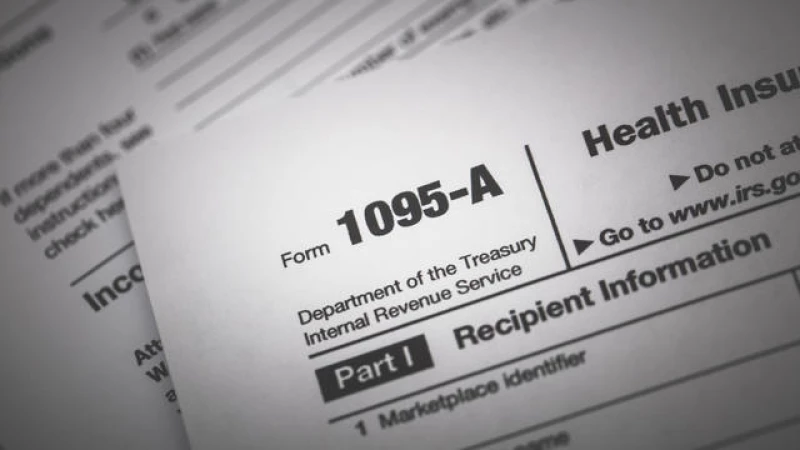Dealing with taxes is never a walk in the park. However, some taxpayers are facing an additional hurdle this year: Their returns are being rejected due to missing information about Affordable Care Act (ACA) coverage they were unknowingly enrolled in.
While concerns about unscrupulous individuals enrolling people in ACA plans without their knowledge have been around for some time, recent months have seen a rise in complaints as consumers realize they are not covered as they believed.
These unauthorized enrollments are now causing issues with tax filings, leading to rejections by the IRS and potential higher tax bills for affected individuals.
"The situation has definitely worsened in the past year. We've already assisted three to four dozen individuals this year," said Erin Kinard, the director of systems and intake at Pisgah Legal Services' Health and Economic Opportunity Program in North Carolina, an organization that aids low-income families in ACA enrollment and tax matters.
Both the IRS and the Centers for Medicare & Medicaid Services, responsible for the federal Obamacare marketplace, did not provide responses to inquiries regarding this issue.
Issues Arise from Unauthorized Health Care Sign-ups
In February, the IRS provided guidance on how to address electronically filed returns rejected due to Affordable Care Act (ACA) issues.
Unauthorized sign-ups for health insurance can occur through various methods, including unauthorized agents accessing online enrollment portals meant for brokers, consumers unknowingly signing up after responding to misleading advertisements, and agents making changes without proper consent despite new regulations in place.
The Centers for Medicare & Medicaid Services (CMS) has not disclosed the extent of affected consumers or sanctioned agents involved in these fraudulent activities.
The lack of transparency has left many taxpayers unaware of the issues they may face when filing their taxes, leading to unexpected tax consequences.
"Discovering that the IRS rejects your tax return can be a shock for many individuals," explained Christine Speidel, an associate professor and director of the Federal Tax Clinic at Villanova University's Charles Widger School of Law.
Returns are rejected if the IRS has information indicating the taxpayer has ACA coverage but the returns don't include forms that help determine whether premium tax credits paid on the policyholder's behalf to insurers were correct. If their income was misstated by the rogue broker who enrolled them, for example, they might not have qualified for the full amount paid. Or, if they had affordable employer coverage, they would not have been eligible for ACA subsidies at all.
Ashley Zukoski, an ultrasound technologist in Charlotte, North Carolina, had employer coverage but now faces a tax bill for an ACA plan she said she never signed up for. She reached out to KFF Health News after it reported on such unauthorized plan enrollments.
Unbeknownst to her, she said, a broker in Florida enrolled her family in an ACA plan in late February 2023, even though Zukoski had coverage starting that January through her job. The broker listed an income that qualified the household for a full subsidy, so Zukoski never received a premium bill.
Her first inkling that something was amiss came early in 2024 when she received a special form, called a 1095-A.
But, because Zukoski's pharmacy had billed the ACA plan instead of her job-based coverage, her request was denied. She plans to appeal.
In the meantime, the family has filed an extension on their taxes.
"Our $4,100 refund has turned into a nearly $700 tax bill due to the 1095-A and premium tax credit adjustments," Zukoski lamented.
As the deadline for federal tax filing approaches on April 15, experts in taxation and insurance are advising affected individuals to take specific actions.
One crucial step is to file for an extension, considering the potential delay in receiving corrected forms. By obtaining an extension, taxpayers can secure additional time to address their filings. It is also recommended that individuals settle any outstanding tax liabilities when requesting an extension to prevent incurring penalties and interest.
For assistance in lodging complaints with federal or state regulatory bodies, consumers can reach out to their insurance agents or turn to assisters and "navigator" programs. These government-funded nonprofit organizations specialize in helping individuals enroll in insurance plans or manage insurance-related issues.
Many cases are being handled by navigators and assisters this year, who are able to submit "complex case forms" to assist federal officials in investigating such complaints, according to Lynn Cowles, program manager for Prosper Health Coverage, a navigator program in Texas.
KFF Health News is a national newsroom that produces in-depth journalism about health issues and is one of the core operating programs at KFF—an independent source of health policy research, polling, and journalism. Learn more about KFF.







